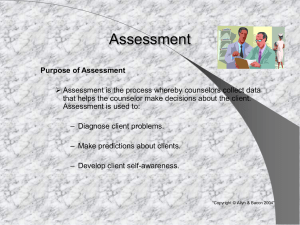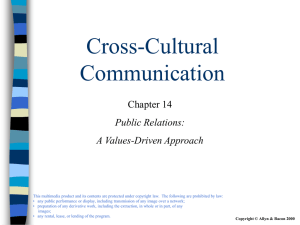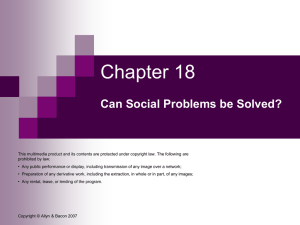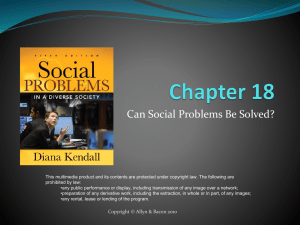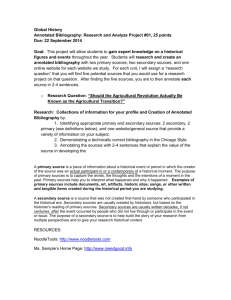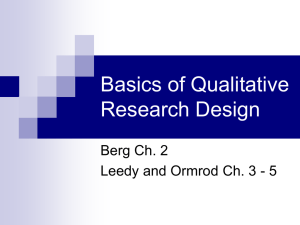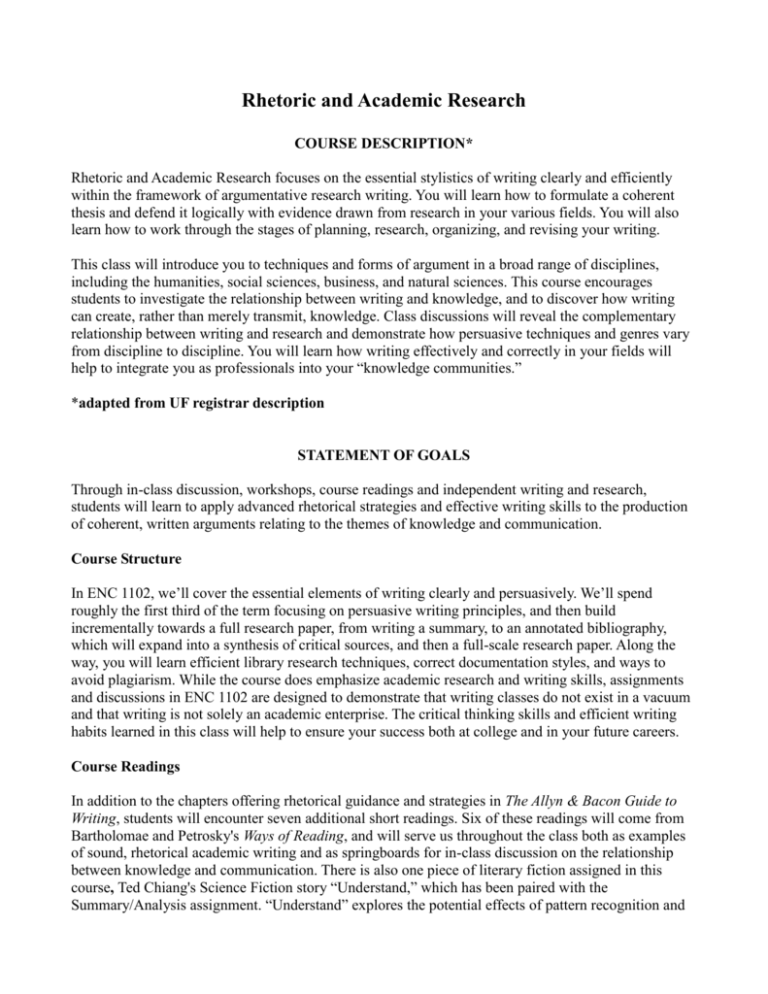
Rhetoric and Academic Research
COURSE DESCRIPTION*
Rhetoric and Academic Research focuses on the essential stylistics of writing clearly and efficiently
within the framework of argumentative research writing. You will learn how to formulate a coherent
thesis and defend it logically with evidence drawn from research in your various fields. You will also
learn how to work through the stages of planning, research, organizing, and revising your writing.
This class will introduce you to techniques and forms of argument in a broad range of disciplines,
including the humanities, social sciences, business, and natural sciences. This course encourages
students to investigate the relationship between writing and knowledge, and to discover how writing
can create, rather than merely transmit, knowledge. Class discussions will reveal the complementary
relationship between writing and research and demonstrate how persuasive techniques and genres vary
from discipline to discipline. You will learn how writing effectively and correctly in your fields will
help to integrate you as professionals into your “knowledge communities.”
*adapted from UF registrar description
STATEMENT OF GOALS
Through in-class discussion, workshops, course readings and independent writing and research,
students will learn to apply advanced rhetorical strategies and effective writing skills to the production
of coherent, written arguments relating to the themes of knowledge and communication.
Course Structure
In ENC 1102, we’ll cover the essential elements of writing clearly and persuasively. We’ll spend
roughly the first third of the term focusing on persuasive writing principles, and then build
incrementally towards a full research paper, from writing a summary, to an annotated bibliography,
which will expand into a synthesis of critical sources, and then a full-scale research paper. Along the
way, you will learn efficient library research techniques, correct documentation styles, and ways to
avoid plagiarism. While the course does emphasize academic research and writing skills, assignments
and discussions in ENC 1102 are designed to demonstrate that writing classes do not exist in a vacuum
and that writing is not solely an academic enterprise. The critical thinking skills and efficient writing
habits learned in this class will help to ensure your success both at college and in your future careers.
Course Readings
In addition to the chapters offering rhetorical guidance and strategies in The Allyn & Bacon Guide to
Writing, students will encounter seven additional short readings. Six of these readings will come from
Bartholomae and Petrosky's Ways of Reading, and will serve us throughout the class both as examples
of sound, rhetorical academic writing and as springboards for in-class discussion on the relationship
between knowledge and communication. There is also one piece of literary fiction assigned in this
course, Ted Chiang's Science Fiction story “Understand,” which has been paired with the
Summary/Analysis assignment. “Understand” explores the potential effects of pattern recognition and
transmission of knowledge when taken to superhuman levels, building to a climactic “argument” that
pits aesthetic appreciation against order and social responsibility. As such, “Understand” is perfectly
placed to bridge our discussions of rhetorical analysis, synthesis and communication within (and
between) “knowledge communities.”
In the course of writing and revising their own work, students will be expected to utilize Lester
Faigley's Brief Penguin Handbook as a reference guide that will assist them in improving each paper's
grammar, research/citation strategies and overall structure. Students are expected to take the initiative
to work with the sections of the Handbook most appropriate to their assignments as they come up, but
will also be directed to readings within the Handbook based on individual need.
Required Texts (available in the University bookstore)
Bartholomae, David. and Anthony Petrosky. Ways of Reading. 8th ed. Boston: Bedford/St. Martin,
2008.
Faigley, Lester. The Brief Penguin Handbook. New York: Pearson Longman. 3rd Edition.
ISBN: 0-205-50582-1
Ramage, John D., John C. Bean, and June Johnson. The Allyn and Bacon Guide to Writing. New York:
Pearson, 2009.
Online Reading
Chiang, Ted. “Understand.” Asimov's. 1991. Infinity Plus. 1999. Web.
link: http://www.infinityplus.co.uk/stories/under.htm.
ASSIGNMENTS AND GRADING
POINTS
Summary and Analysis (1000 words)
To demonstrate critical reading and analysis, students will write a brief
summary followed by a detailed analysis of the same document.
150
Synthesis of Literature (1200 words)
To demonstrate the skill of synthesizing information, students will analyze three
essays and then synthesize them to demonstrate how they have reached an enlarged
perspective on a specific topic.
150
Research Prospectus/Presentations (400 words)
As a part of topic and thesis development, students will write a brief proposal and
present preliminary findings to the class.
Annotated Bibliography of 15-20 sources (1200 words)
In preparation for the Research Paper, students will gather and annotate sources
emphasizing their value for a particular research project.
75
150
Research Exploratory Paper (1000 words)
The exploratory paper will help establish and limit the context of your argument,
while demonstrating your (rhetorical) knowledge of the topic at hand. A refined
thesis, or the initial premise for your research, is typically offered up as the
conclusion of the exploratory paper.
125
Research Paper (2700 words)
As the culmination of the course, the research paper will incorporate the skills of
argumentation, summary, analysis, and synthesis that students have refined during the
semester. In the paper, students will make a clear, specific, narrow argument about an
arguable topic. The argument will be logos-based and supported with evidence in the
form of facts, statistics, and/or quotations from experts in the field.
250
Revisions (Optional!) - due by the last day of class
You are to revise two (2) of your papers (Summary/Analysis, Annotated
Bibliography, or Research Exploratory Paper). The revisions must be accompanied
by a reflective letter that addresses your thinking through the revising process. You
will be graded on both the revisions and the letter.
100
900 (no revisions)
OR
1000
TOTAL
Grading Scale
A
4.0
93-100
930-1000
C
2.0
73-76
730-769
A-
3.67
90-92
900-929
C-
1.67
70-72
700-729
B+ 3.33
87-89
870-899
D+
1.33
67-69
670-699
B
3.0
83-86
830-869
D
1.0
63-66
630-669
B-
2.67
80-82
800-829
D-
0.67
60-62
600-629
C+ 2.33
77-79
770-799
F
0.00
0-59
0-599
GRADING CRITERIA
This class is based on a 1000 point system, so a large portion of your grade will be determined by
percentage. However, there are other requirements that must be met in order to receive a good score in
this course. Assignments are graded for completeness, correctness and overall quality.
To get an "A" in this course, you must:
Complete all course assignments in a timely manner.
Submit assignments with few to no grammatical and spelling errors.
Consistently participate in class discussions.
Be courteous to the other participants in the class.
Produce high-quality work throughout the course.
Have no more than 3 periods of unexcused absences for the term.
"A-" work will meet most, but not all, of the requirements for getting an "A."
To get a "B" in this course, you must:
Complete all course assignments in a timely manner.
Submit assignments with few grammatical and spelling errors.
Participate in most online and in-class discussions.
Be courteous to the other participants in the class.
Produce satisfactory work throughout the course.
Have no more than 3 periods of unexcused absences for the term.
"B-" work will meet most, but not all, of the requirements for getting a "B."
To get a "C" in this course, you must:
Complete most course assignments in a timely manner.
Participate in class discussions.
Be courteous to the other participants in the class.
Produce satisfactory work throughout the course.
Have no more than 6 absences for the term.
"C-" work will meet most, but not all, of the requirements for getting a "C."
To get a "D" in this course, you must:
Have no more than 6 periods of unexcused absences for the term.
Participate in some online and in-class discussions.
Be civil to the other participants in the class.
Earn enough "points" in your coursework to avoid a failing score.
COURSE POLICIES
Attendance and Preparation
You are expected to be prepared for every class, including completing all reading and writing
assignments on time. Failure to be prepared for or to contribute to in-class activities and discussion will
lower your participation grade. Papers and drafts are due at the beginning of class. Late papers will
not be accepted. Failure of technology is not an excuse.
Mode of Submission
All papers must be in 12-point Times New Roman font and double-spaced. Be sure to staple papers
before submitting hard copies. (You may want to get a mini stapler to keep with you.) Your final drafts
should be polished and presented in a professional manner.
Late Work and Extensions
Late work will be accepted at a penalty of one letter grade per class period that an assignment is late.
Extensions will be awarded on a case-by-case basis, and will ONLY be awarded when requested in
advance of the assignment deadline.
Extra Credit
Some extra credit opportunities may be made available throughout the class, at the discretion of the
instructor. However, thematically appropriate proposals for extra credit assignments are always
welcome (though their acceptance is not guaranteed). Proposals must include a description of the
proposed assignment, as well as a rhetorically sound argument for incorporating the extra credit
assignment into the course.
SCHEDULE
Note: Unless otherwise described, all page numbers listed in the following Schedule are from
Bartholomae and Petrosky's Ways of Reading.
Introduction: On Writing and Education
Week 1
Introduction to the Class; Syllabus Review and Course Guidelines; Introduction to Research
Allyn & Bacon Chapters 1-2, Allyn & Bacon Chapters 1-2, “Thinking Rhetorically about Good
Writing” and “Thinking Rhetorically about Your Subject Matter”
Freire, “The 'Banking' Concept of Education” (242-254)
Summary Assigned
Unit I: Awareness, Revision and Understanding
Week 2
Critical Reading and Summaries
Allyn & Bacon Chapter 6, "Reading Rhetorically."
Close Reading Assignment
Rich, “When We Dead Awaken: Writing as Re-Vision” (517-533)
Summary draft DUE; peer review
Week 3
Rodriguez, “The Achievement of Desire” (544-563)
Close Reading Assignment
Summary/Analysis Assigned
Professional Summary DUE; peer review
Week 4
Allyn & Bacon Chapter 3, “Thinking Rhetorically about How Messages Persuade,”
Chiang, Ted. “Understand” link: http://www.infinityplus.co.uk/stories/under.htm
Summary/Analysis draft DUE; peer review
Unit II: The Framing of Knowledge: Communication, Space and Place
Week 5
Analyzing Texts—Critically and Rhetorically
Allyn & Bacon Chapter 4, “Thinking Rhetorically about Style and Document Design”
Foucault, “Panopticism” (207-237)
Choosing Essays
Synthesis Essay Assigned
Professional Summary/Analysis DUE
Week 6
Group work on Synthesis Essay; Making Connections
McKeon, “Subdividing Inside Spaces” (394-437)
Synthesis draft DUE; peer review
Unit III: Aesthetics and Perspective: What We “Know” About Art
Week 7
Lesson in Style (Clarity, Coherence, Unity)
Allyn & Bacon Chapter 18, “Composing and Revising Closed-Form Prose”
Bordo, “Beauty (Re)discovers the Male Body” (129-176)
Research Activity—bring topic and questions about topic to class
Research Prospectus Assigned
Professional Synthesis DUE
Week 8
Working Prospectus DUE
Form Research Groups—present research topic and questions to group
Library Tutorial
Week 9
Professional Research Prospectus Due
Skim Allyn & Bacon, Chapters 20 and 21, “Asking Questions, Finding Sources” and “Evaluating
Sources”
Library Orientation
Unit IV: First-Person Limited: Perspective and Narration
Week 10
Internet Research—evaluating websites
Documentation Styles and Formats—Avoiding Plagiarism
Annotated Bibliography Assigned
Skim Allyn & Bacon, Chapters 22 and 23, “Incorporating Sources” and “Citing and Documenting
Sources”
Week 11
Annotated Bibliography WORKSHOP—bring five sources
Week 12
Annotated Bibliography draft DUE; peer review; review common problems with annotations
Exploratory Essay Assigned; Draft Exploratory Essay in class
Allyn & Bacon Chapter 8, “Writing an Exploratory Essay”
Week 13
Research Paper Exploratory draft DUE; peer review
Crafting Thesis Statements
Thesis Statement Assigned
Professional Exploratory Paper DUE
Professional Annotated Bibliography Due
Outline and Introduction Assigned
Week 14
Outline and Introduction draft DUE; peer review
Research Paper Assigned
Week 15
Mandatory Research Paper CONFERENCES
Research Paper draft DUE; peer review
Week 16
LAST DAY OF CLASS; Professional Research Paper DUE

